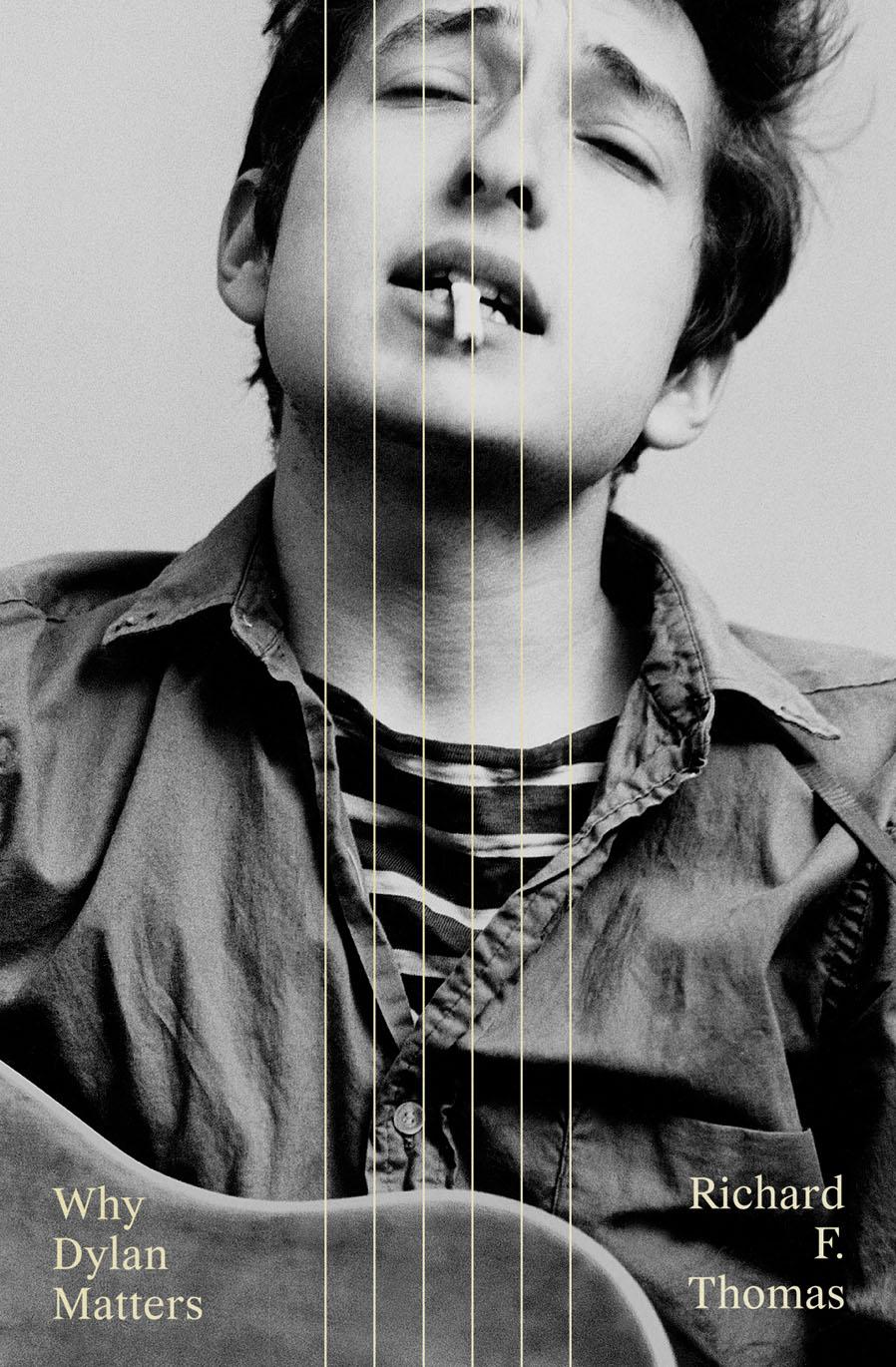Why Bob Dylan Matters by Richard F Thomas, review: Accessible and enjoyable
He may be an exhaustive Dylanologist himself, but Rich F Thomas's elegant, charming book offers something for everyone – not just the super-fans

Your support helps us to tell the story
From reproductive rights to climate change to Big Tech, The Independent is on the ground when the story is developing. Whether it's investigating the financials of Elon Musk's pro-Trump PAC or producing our latest documentary, 'The A Word', which shines a light on the American women fighting for reproductive rights, we know how important it is to parse out the facts from the messaging.
At such a critical moment in US history, we need reporters on the ground. Your donation allows us to keep sending journalists to speak to both sides of the story.
The Independent is trusted by Americans across the entire political spectrum. And unlike many other quality news outlets, we choose not to lock Americans out of our reporting and analysis with paywalls. We believe quality journalism should be available to everyone, paid for by those who can afford it.
Your support makes all the difference.Ah, to be a Dylanologist. In his 2014 book, Dylanologists: Adventures in the Land of Bob, David Kinney relates the stories of some of Bob Dylan’s most ardent followers. “Why am I such a mess?” asks one Charlie Ciceralla, who has a nervous breakdown in the queue for one of Dylan’s shows. Another, Bill Pagel, forks out a small fortune for the infant high chair of the 2017 winner of the Nobel Prize in Literature. “Bill had no second thoughts,” writes Kinney. “He was thrilled to discover it. He paid the woman and took it home. It’s not on display. He tucked it under the eaves, hidden in the back of a crawl space facing a wall.”
Dylan himself has offered terse advice for the likes of Charlie and Bill. “Get a life, please,” he told an interviewer in 2001. “You’re wasting your own.”
As far back as the 1965 song “Ballad of a Thin Man” to 2006’s “Nettie Moore”, the Nobel laureate has also been sticking it to those who would hang out with “the professors” and have “been through all of F Scott Fitzgerald’s books”: “The world of research has gone berserk/Too much paperwork”. Some illuminating but stodgy critical works, by literature professors Sir Christopher Ricks and Neil Corcoran, have shed persuasive light on Dylan’s poetic voice, but even the finest exegesis thus far, Greil Marcus’s mythopoeic Invisible Republic, was amusingly deemed “terminal” by its subject. The controversy kicked up by Dylan’s being awarded the globe’s most prestigious literary accolade is likely to generate yet more searches for what David Kinney refers to as the “answer key or a master code” to Dylan’s art.
Anyone looking to escape what the author of Why Bob Dylan Matters himself politely calls “the excesses” of Dylanology might do well to avoid Richard F Thomas’s take on rock’s Bard. Thomas, a Harvard classics don who has taught a freshman seminar on Dylan since 2003, is, to be honest, as exhaustively “terminal” as Dylanologists get. But one of his central theses – that Dylan is the descendant of the epic poets of Greece and Rome and “the supreme artist of the English language of my time” – is made with grace and fluency, perhaps best reflected in a lovely dissection of the 1964 song “Chimes of Freedom”.
He movingly makes the case for the song’s “vast empathy”, as compelling a study as Christopher Ricks’s reading of the righteous fury of “The Lonesome Death of Hattie Carroll”. But, yes, Dylan’s affinity with ancient verse probably has nothing to do with his membership of the school Latin club, his fondness for ‘swords-and-sandles’ sagas such as The Robe, and the fact that he once dressed up as a Roman soldier in a non-speaking role in a Hibbing High play about the passion of Christ.
Plenty of people, being proffered the argument that Dylan’s shows of late have been structured as “triadic dramas”, might also beg to differ. “There is something about being in a Dylan audience,” Thomas notes. Having a beer before a show “must be like getting ready for the visit of the itinerant lyre players of ancient Greece”.
And yet, and yet. His second thesis – that Dylan is a master of “intertextuality”, imaginatively “stealing” lines from classical poetry and folk songs, a process TS Eliot saw as a mark of a great poet – is similarly made elegantly, and more importantly, accessibly and enjoyably. Say what you like about other Dylan books, and to be frank, most rock books, but accessible and enjoyable they rarely are. This small book could be given to just about any member of the family for Christmas and they could all get something from it. As Thomas quotes Dylan, commenting on the people who come to his hundreds of concerts every year on his Never Ending Tour: “I see a woman sometimes in evening gowns [sic], I see punk-looking girls.”
This is a course for everyone, not just the Dylanologists, and the teacher’s quirks are part of its easy charm and fun.
’Why Bob Dylan Matters’ by Richard F Thomas is published by William Collins in hardback, £12.99
Join our commenting forum
Join thought-provoking conversations, follow other Independent readers and see their replies
Comments